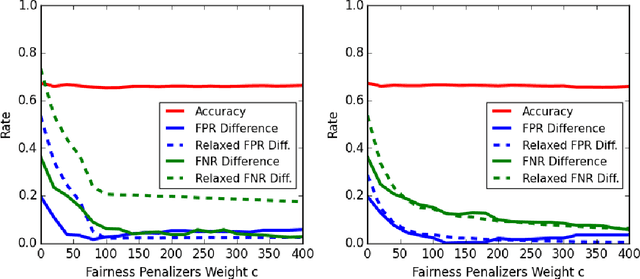Penalizing Unfairness in Binary Classification
Paper and Code
Mar 08, 2018



We present a new approach for mitigating unfairness in learned classifiers. In particular, we focus on binary classification tasks over individuals from two populations, where, as our criterion for fairness, we wish to achieve similar false positive rates in both populations, and similar false negative rates in both populations. As a proof of concept, we implement our approach and empirically evaluate its ability to achieve both fairness and accuracy, using datasets from the fields of criminal risk assessment, credit, lending, and college admissions.
 Add to Chrome
Add to Chrome Add to Firefox
Add to Firefox Add to Edge
Add to Edge